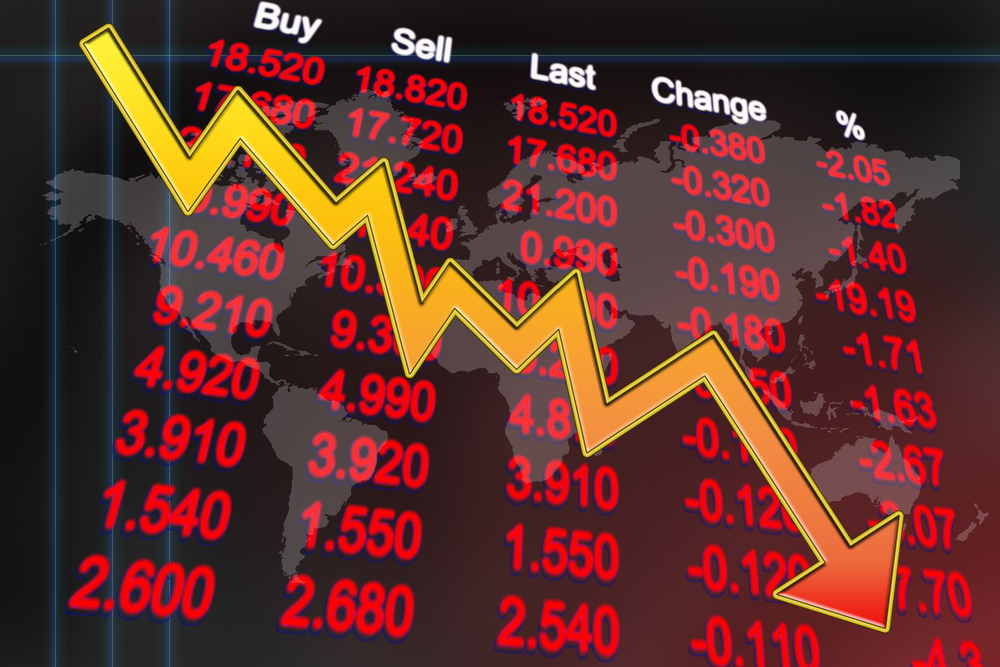Nasdaq Drops 1.9%, Tech Stocks Sell-Off

Author: Michael Stern
Last Updated: 8 May 2021
Tuesday (May 4) saw stocks move slightly lower. Tech stocks led the way down as investors considered recent comments from Treasury Secretary Yellen where she spoke of the possibility of higher interest rates.

The S&P 500 dropped more than one percent, trading off the all-time high. By the close of the trading day, the DOW closed slightly higher. Nasdaq dropped 1.9 percent on the day, the worst performance since March as tech stocks and growth shares added to losses.
Stocks moved down after Secretary Yellen said that she is of the opinion that interest rates in the country might need to increase to prevent the possibility of the economy overheating as the country recovers from the pandemic.
Undoubtedly, an increase in interest rates would impact the valuations of growth companies. Many investors are expressing concern that an easing of monetary policy could slow the market’s recent record highs.
Yellen Concerned with the Economy Overheating
In taped comments given at a virtual event sponsored by the Atlantic, Yellen said that interest rates may have to increase somewhat in order to ensure the economy of the United States doesn’t overheat, even though the additional spending is small when compared to the size of the economy.
Quarterly reports are due from companies including Lyft and Virgin Galactic. So far this year, corporate profits have exceeded estimates quite handily. Of the S&P 500 companies that have already reported quarterly results, 85 percent have topped expectations by more than 22 percent in aggregate, according to Jonathan Golub, an analyst for Credit Suisse.
Wall Street, however, has met these results with a shrug. Many companies, even after posting estimates-topping results, are not seeing the same “pop.” Many observers see this as elevated expectations prior to publishing results. Investors are primed to see corporate profits rebound during the post=pandemic economic rebound.
Kramer Capital Research chief investment officer Hilary Kramer said the numbers are good, however, the response on Wall Street was, at best, neutral. Ms. Kramer went on to say, “There may not be any seasonal sell signal, there is no reason to buy either.” She believes this is the ideal time to review industry positions, make whatever adjustments are necessary, and then sit back on the sidelines for a few months.
Seasonal Stagnant Period
With first-quarter earnings reports almost complete, and a pending stagnant period for gains, over the next few months, investors are left to react to any developments in monetary policy and potential tax changes. Zor Capital managing director, Joe Fahmy believes investors are focused more on potential changes in the tax structure than on specific industry fundamentals.
Over the short term, Fahmy is maintaining a cautious approach, however, he does say he is bullish long-term. In his opinion, one of two things could happen. Scenario one sees growth stocks stabilizing, lifting the markets, or, in scenario two, weakness below the surface can take the market lower.
For several reasons, Fahmy is leaning toward the latter, primarily because of the happenings over the last couple of weeks. Although many tech stocks reported remarkable earnings, Fahmy likes to say, “It’s not the news, it’s the reaction of the market to the news that counts.”
Blue Line Futures president, Bill Baruch, suggests there may be a near-term churn in the market. Baruch went on to say, “I am looking for something more akin to March, where February’s moves were digested.” Baruch thinks a similar scenario may take place for April moves. He sees the level of the S&P, currently at 4,167, as being sticky. Although the level has been both above and below since achieving it, he sees it playing back and forth.
BWCEvent aspires to share balanced and credible details on cryptocurrency, finance, trading, and stocks. Yet, we refrain from giving financial suggestions, urging users to engage in personal research and meticulous verification.


